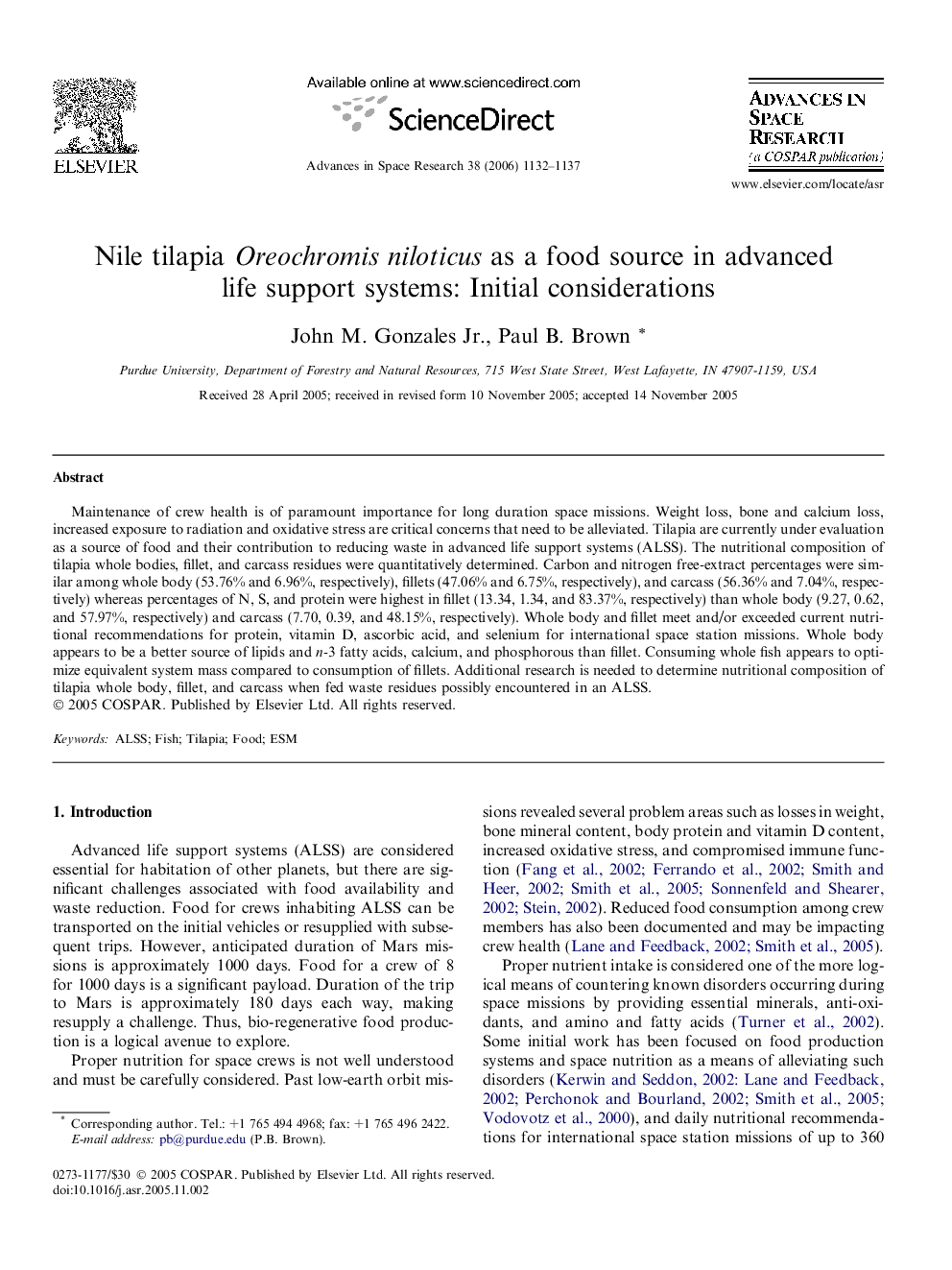| Article ID | Journal | Published Year | Pages | File Type |
|---|---|---|---|---|
| 1769361 | Advances in Space Research | 2006 | 6 Pages |
Maintenance of crew health is of paramount importance for long duration space missions. Weight loss, bone and calcium loss, increased exposure to radiation and oxidative stress are critical concerns that need to be alleviated. Tilapia are currently under evaluation as a source of food and their contribution to reducing waste in advanced life support systems (ALSS). The nutritional composition of tilapia whole bodies, fillet, and carcass residues were quantitatively determined. Carbon and nitrogen free-extract percentages were similar among whole body (53.76% and 6.96%, respectively), fillets (47.06% and 6.75%, respectively), and carcass (56.36% and 7.04%, respectively) whereas percentages of N, S, and protein were highest in fillet (13.34, 1.34, and 83.37%, respectively) than whole body (9.27, 0.62, and 57.97%, respectively) and carcass (7.70, 0.39, and 48.15%, respectively). Whole body and fillet meet and/or exceeded current nutritional recommendations for protein, vitamin D, ascorbic acid, and selenium for international space station missions. Whole body appears to be a better source of lipids and n-3 fatty acids, calcium, and phosphorous than fillet. Consuming whole fish appears to optimize equivalent system mass compared to consumption of fillets. Additional research is needed to determine nutritional composition of tilapia whole body, fillet, and carcass when fed waste residues possibly encountered in an ALSS.
